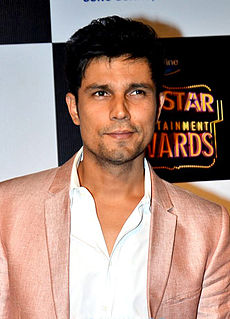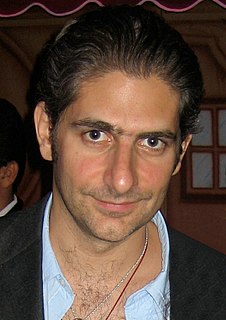A Quote by Paul Bettany
Film used to have to be niche and find its audience in a little art house cinema, and TV had to work for everybody. And now it's kind of flipped where there's so many platforms that TV can be incredibly niche.
Related Quotes
A movie is a mass consumption product. I have got no delusions about being niche. I don't want to be niche. Though in the earlier part of my career I was into niche cinema, doing independent films - and I do have a revolutionary bent of mind - but you cannot make a change from outside; you have to be a part of it.
I think that people should find a niche that will work. I have friends growing up who sat around playing video games for hours after school, and now they work for the video game industry. People need to find a niche so it doesn't feel like a job anymore. When I'm working on the "Lights Out" brand, it's fun. It's not work.
The first thing I say when people ask what's the difference [between doing TV and film], is that film has an ending and TV doesn't. When I write a film, all I think about is where the thing ends and how to get the audience there. And in television, it can't end. You need the audience to return the next week. It kind of shifts the drive of the story. But I find that more as a writer than as a director.
I didn't think, 'I'd really like to work in TV; maybe I could carve out a niche where I talk to people who are somehow involved in marginal or difficult lifestyles... ' It was something I gravitated to very naturally as a subject area, almost instinctively, and somehow turned into a TV career without meaning to.
I've always loved theatre because it's so immediate. The challenge of it is that, career wise, it's easier to get traction in the industry if you do film and TV because the audience is larger, and because the work can be seen for a longer period of time. I did solid work in a series of regional and Off-Broadway shows, but the work I did on TV or film will have a longer life with a larger audience (and with services like Netflix). Ultimately, there's something intimate about TV, because the storytelling and the actors come home with the viewer. It can be powerful because of that.



































